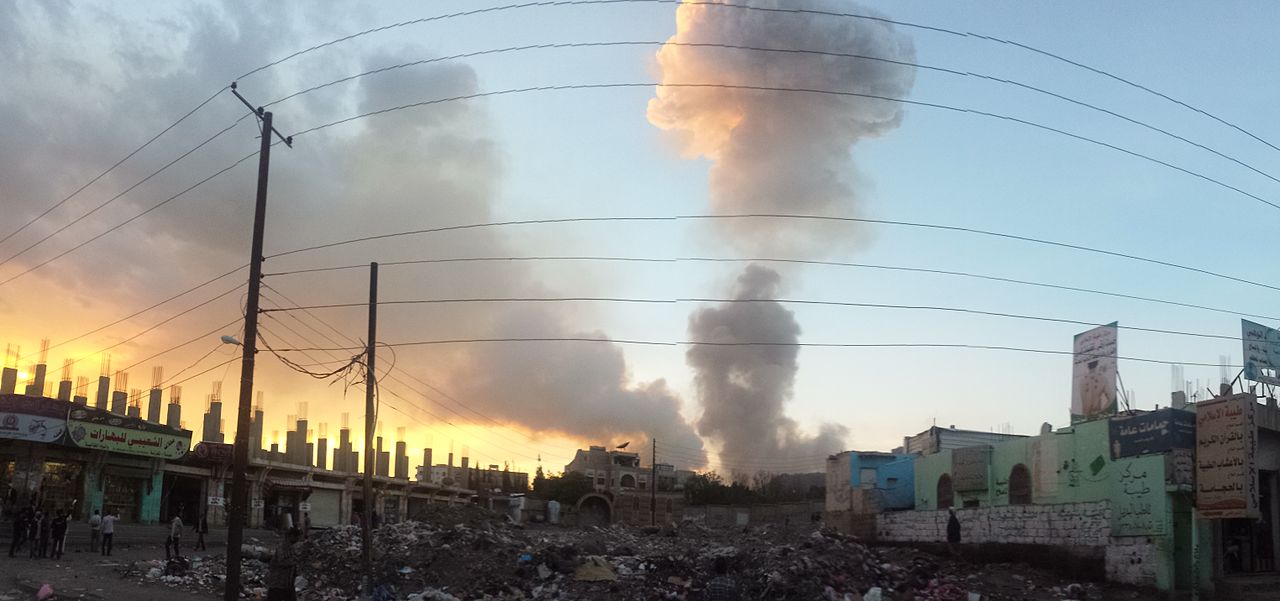Yemen, at present, is in the midst of a civil war which, since it started last March, has cost nearly 6,000 lives and brought about a humanitarian crisis in what was already one of the most impoverished countries in the Middle East.
Of the 4,000 health facilities in the country, over 600 are no longer functioning, eighty per cent of the population lack access to clean water because many pumps, storage tanks and pipes have been destroyed, electricity systems are breaking down and 15 million Yemenis are struggling to get enough food to eat, with one in ten (2.5 million) internally displaced.
And it is the Saudi-led bombing campaign, which seeks to crush the Shia Houthis who overthrew the country’s Sunni government last year, which appears to have done much of the damage. The Saudi regime already stands accused of bombing homes, schools and hospitals and of being responsible for a large proportion of the civilian deaths in the conflict.
Now parts of a UN report on Yemen have surfaced which claim that the coalition has systematically targeted “civilians and civilian objects”, including houses, refugee camps, medical facilities, markets, mosques, factories and food storage warehouses – in violation of international humanitarian law. It appears that Saudi Arabia and its allies hope to restore the former president Abd Rabbuh Mansur Hadi by bringing much of the country to its knees.
David Cameron has said repeatedly in Prime Minister’s Questions this year that the UK is not “directly” involved in the conflict. However, it is clear that in continuing to sell arms to Saudi Arabia, as well as having military advisors present in the command and control centre for the bombing campaign, the UK is essentially enabling this reportedly illegal intervention.
In fact, not only are British arms companies continuing to sell to Saudi Arabia, they are doing so at a much, much faster rate in wake of the conflict, at the consent of the British government. Of the £6 billion worth of arms sold to Saudi Arabia by Britain since Cameron took office, almost half of those sales (£2.8 billion worth) have occurred since Saudi Arabia started bombing Yemen last March. It seems that Britain’s arms companies are reaping economic reward out of the slaughter of innocents.
Unsurprisingly, advisors from our own Foreign Office have warned that our arming of Saudi Arabia could be in breach of international humanitarian law and that the UK could conceivably be pulled before the International Criminal Court to answer for its actions.
Furthermore, Cameron claimed on Wednesday that:
“We are backing the legitimate government of Yemen, not least because terrorist attacks planned in Yemen would have a direct effect on people in our country.”
Yet, as experts such as retired Major General Tim Cross have pointed out, it is the Saudi-led coalition we are aiding which has been central to creating the conditions for terrorist groups like ISIS and al-Qaeda to flourish in Yemen, with two-thirds of the total casualties thought to have been caused by its airstrikes.
In light of all this, Angus Robertson was right to challenge Cameron on the government’s compliance with Saudi Arabia in the Yemeni conflict last week – and he should continue to be pressed on the issue. The Saudi Arabian government is now not only committing human rights abuses in its own sphere, it is also committing human rights abuses in a neighbouring country.
If Cameron is remotely serious about his message of compassionate conservatism, both at home and abroad, then he must radically rethink Britain’s policy in regard to this increasingly hostile regime.
Ivor Jones
Image: Ibrahem Qasim

